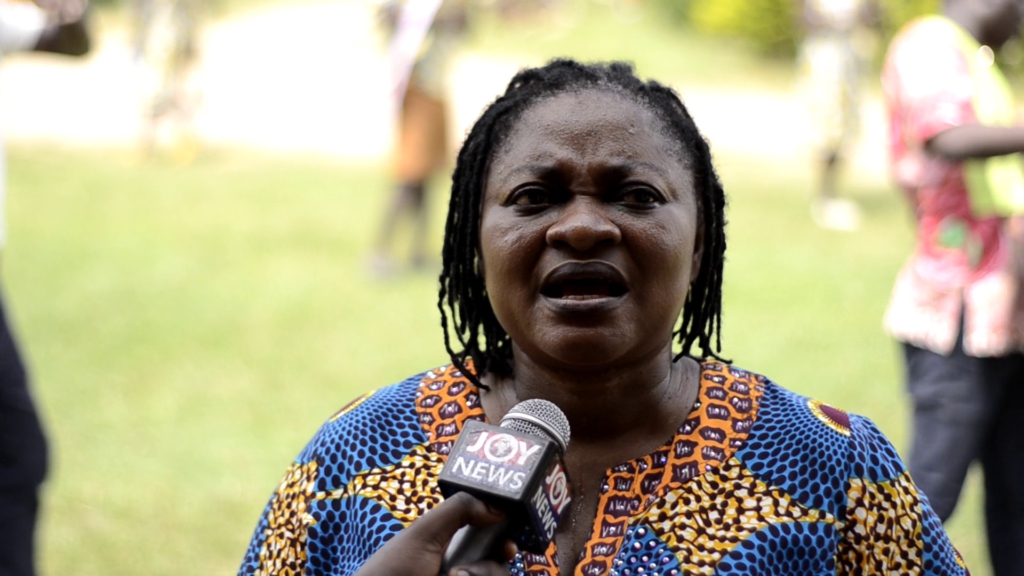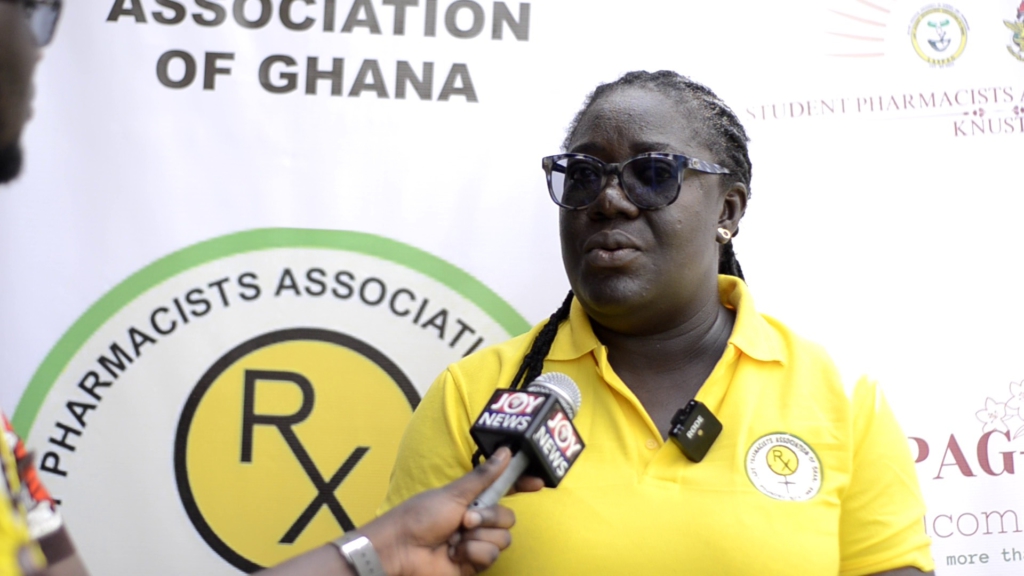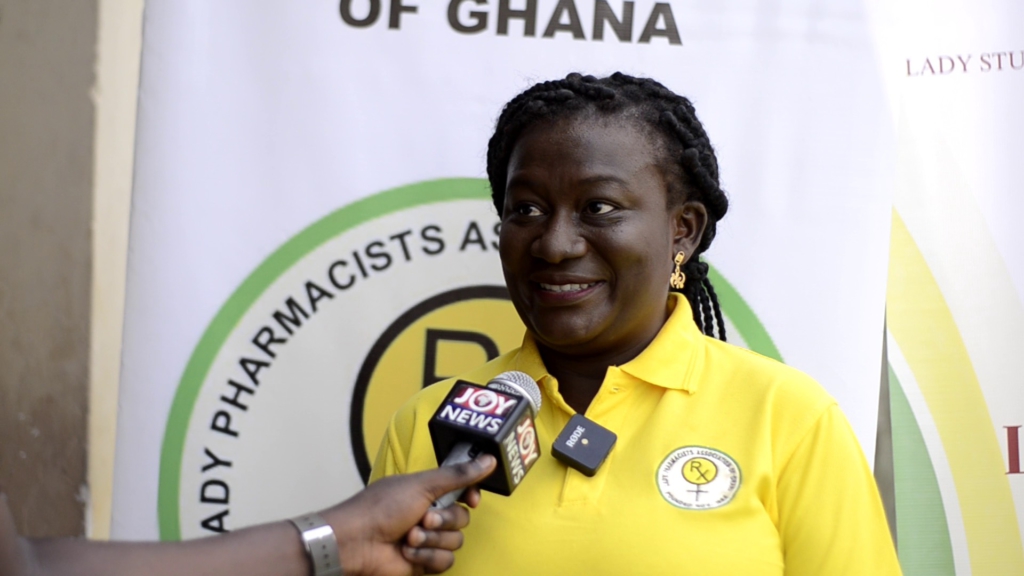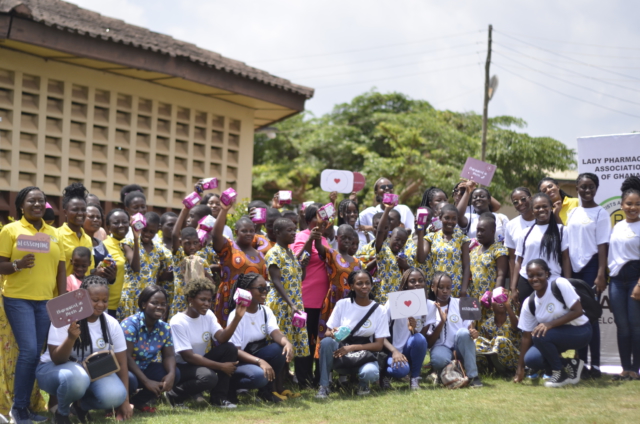Calls to scrap taxes on hygienic pads are heightening as some girls with special needs are forced to stay out of class for more than half of their four-month stay in school over exorbitant cost of sanitary pads.
As a crucial item on list needed for school, single parents of these teenage girls who cannot afford the pads are compelled to refrain their wards from school, hampering their academic and social progress.
It was a joyous moment at the Garden City Special School as members of the school’s choir treat their visitors to some good choral music.
Broad, unending happy smiles on the faces of the female students as each of them receives four packets of sanitary pads.
A gesture by the Lady Pharmacist Association of Ghana (LAPAG) and the Lady Pharmacist Students Association of Ghana (LASPAG) that would provide safe and hygienic menstrual period for them throughout their four-month stay on campus.
But, a worrisome burden on caregivers over the years at the school has been habitual absenteeism by some female students who are unable to afford the sanitary towel.
Nancy Baidoo, a house mother at the school, shares the ordeal poor female students face.
“Some fathers run away from the family, leaving the mother to cater for the kid alone. These single parent cannot buy the pads for them. They stay at home for close to two months until they get money to buy some and come to school,” she said.
A number of female students who cannot purchase the pads resort to the use of cloth, towels, toilet rolls among other disturbing unhygienic items during their periods.

Headmistress of the school, Dr. Roselyn Frimpongmaa Agyapong says many of the girls are yet to come to terms with the reality of menstruating.
“Children with Intellectual and Developmental disabilities do not like blood. When they see blood on their body, they start shouting. So they ran straight to the clinic to report. It’s difficult for some of them to accept blood comes out of them,” she said.
Their pain do not only end after the monthly cycle, but they must endure the stress in catching up on classroom lessons or retard the academic progress of their mates.
“They need continuous tuition. They easily forget things. So when they stay out of class for a longer period, it becomes difficult for them to catch up,” Nancy Baidoo emphasized.
Dr. Roselyn Agyapong continued that; “Sometimes, because of one person the teacher would have to change whatever he’s teaching, bring all the children out to sit under a shade and not do anything challenging”.
It is supposed to be a carnal and sacred phase during womanhood, but menstrual experience in Ghana remains expensive as taxes imposed on sanitary pads continue to balloon.
There have been calls on the government to remove such taxes.

Dr. Naana Aboagye Asare, a pharmacist, does not only demand that the government scraps the taxes but also makes provisions for potable water and hygienic conditions at public schools.
“The government must provide restrooms and places where women and girls can safely change themselves during such times. Public basic schools must be provided with clean potable water for conducive change. Certain traditional norms and misconceptions about menstruation must be condemned, too,” she said.
The Lady Pharmacists Association of Ghana and its student body donated toiletries, sweets and refreshments for pupils of both the Garden City and Deduako Special schools.

Project Lead for the LAPAG Menstrual Hygiene project, Dr. Marian El Boakye-Gyasi says the gesture forms of annual corporate activities of the group to provide for the less endowed.
“We know that with schools like these they have a tight budget when it comes to feeding and other things. So the provision of these pads and will help them in running the school and the girls will not feel left out,” she said.
The plight of these students mirrors that of majority of teenage girls across the country.
Until the government removes the taxes, many girls and women would continue to menstruate ‘expensively’.
Latest Stories
-
Ghana’s emerging economic potential – Ekumfi and Natural Juices Industries
6 mins -
Global economy resilient; to expand by 3.2% in 2024 – IMF
24 mins -
NDC takes on Akufo-Addo over renaming and relocation of Ameri Power Plant
44 mins -
First product of Meghan’s lifestyle brand revealed
44 mins -
West African leaders dial down on Togo mission
51 mins -
Season 5 of BMPS Show on Joy Prime takes off on April 18
51 mins -
Election 2024: EC opens applications for various positions
54 mins -
Senegal seizes over a tonne of cocaine in record haul
57 mins -
Another man jailed for 8 months over missing genitals
1 hour -
Man, 40, in police grips for having sex with a goat
1 hour -
Bayern Munich: Harry Kane says season will be failure if they fail to win Champions League
1 hour -
Werder Bremen suspend Naby Keita until end of season
1 hour -
It hurts to be labelled a thief – Joseph Osei-Owusu
1 hour -
Finance Minister, BoG Governor leads Ghana’s delegation to IMF/World Bank Spring Meetings in Washington
1 hour -
My experience will make me a better President than I was – Mahama
2 hours

